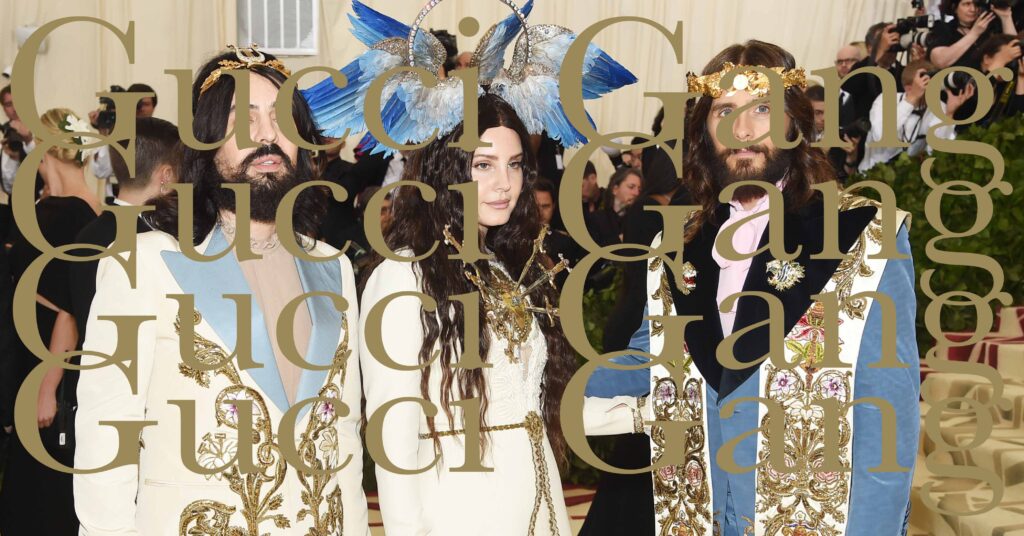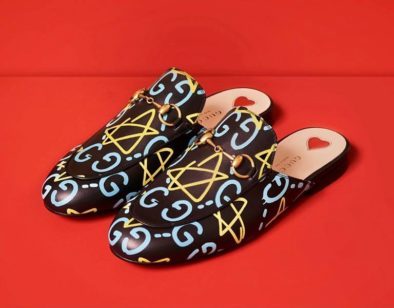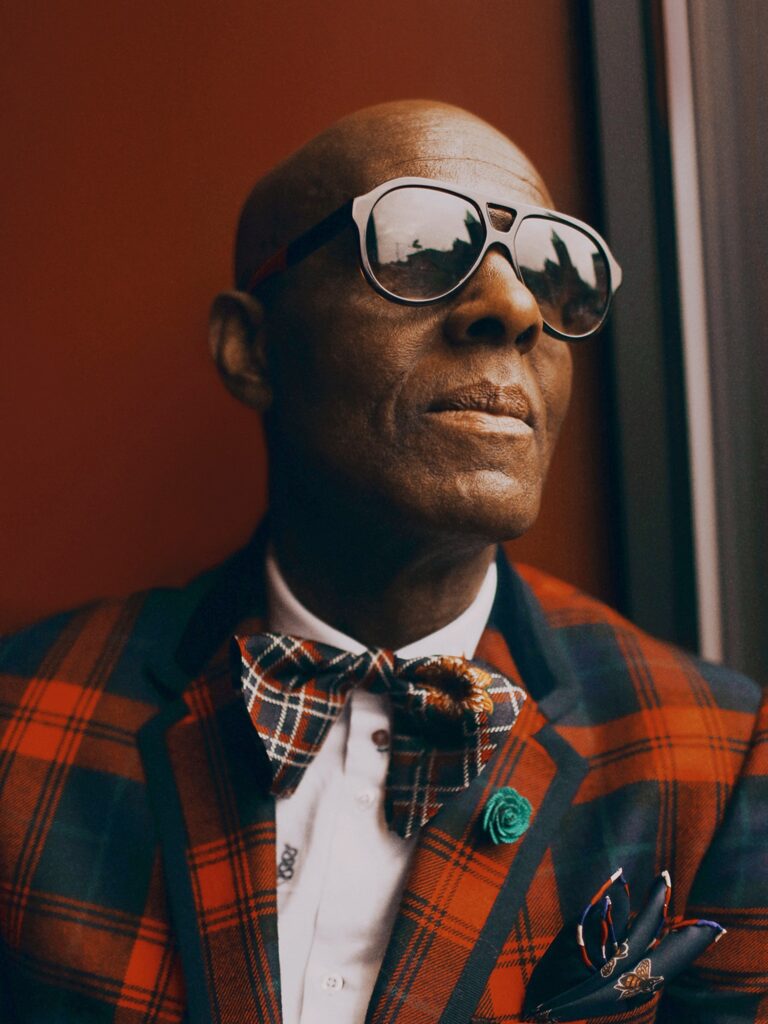
Alessandro Michele is a visionary designer, that’s almost unanimously agreed upon in the fashion world. But the mastermind behind Gucci’s ascent over the past four years also has a genius for marketing. More specifically, co-opting the organically created cultural marketing of the brand that already existed by embracing the use of the Gucci name by entities outside the company rather than fighting them. Gucci is one of a handful of icon brands that have come to represent money and success but for some reason Gucci alone has transcended fashion and become an analogous term for being happy and successful.
Long before Michele became Creative Director of the Italian stalwart, the word “Gucci” had taken on a life of its own. This transformation can be traced back to hip-hop in the late 1990s. As Tom Ford was transforming Gucci into one of the hottest brands in the world, hip-hop was enjoying massive mainstream success and reaping the financial benefits that came with it. As wealth became a focal point for rappers, Gucci became one of the primary brands used to display their wealth.

Phonetics almost certainly played a part in Gucci’s proliferation across the cultural landscape. If you vocalize the brands that existed at the top of the fashion world in the late 90’s and early 00’s – go ahead, say them with me – Louis Vuitton, Coach, Burberry, Ralph Lauren, Calvin Klein, Hermes, none of them roll off the tongue as smoothly as Gucci. Hip-hop is an auditory medium first and foremost so it makes sense that the best sounding brand name received the most attention. There is also a long-standing practice in English language slang, dating back to Victorian London, where a similar sounding word will come to replace a word that has no other connection beyond phonetics. In this case, “Gucci” is a much more eloquent sounding stand in for “Good” while also carrying the double entendre representing wealth.
Pop-culture’s obsession with the word “Gucci” beyond the brand Gucci is best represented by Trevor Andrew. The Olympic-snowboarder-turned-graphic-artist gained a cult following from 2013 to 2016 by using the Gucci name and logos mixed with original designs in archaic graffiti formats done mostly in spray paint. The designs were clearly thought out but looked hurried and were done in simple, often neon colors. Social media grabbed ahold of Andrew’s work and it became the kind of organic marketing sensation that no amount of money could buy. So rather than spend money trying to sue Andrew for copyright infringement and stop him from using the Gucci name, Michele invited Andrew to Milan to work for him. Michele recognized that in the modern age where everyone is under a constant marketing blitz across all media platforms, the kind of organic buzz that Andrew produced was far more valuable than any marketing campaign. Andrew went to work designing a full line along with personally crafted one-off pieces under the name Guccighost. The line has been a sensation and another victory for Gucci.

Following the success of Guccighost, Gucci arranged another partnership with a would-be target for litigation. This time Michele partnered with perhaps the most legendary bootlegger in the history of high-end fashion. Harlem’s own Dapper Dan. GQ Style did a great piece in their Spring ’18 issue on the history of Dapper Dan’s work and the arrangement he has worked out with Gucci. In short, Dan spent 1982 to 1992 producing bespoke pieces for rappers, athletes and drug lords using the most expensive materials obtainable and hand produced, unsanctioned replicas of iconic fashion brands. The FBI shut him down for copyright infringement but his legend has only grown since. His pieces were all one of a kind and because of their illicit nature, they were not well documented. His work has become the kind of folklore, passed on only by word of mouth, which could only have been created under his unique circumstances. This kind of backstory is impossible to reproduce and the organic marketing potential it offered drew Michele’s attention. This partnership has only just begun but the hype behind it is huge and potentially very lucrative for both Gucci and Dapper Dan.
Guccighost and Dapper Dan offered two unique opportunities for the Gucci brand that Michele took advantage of. In both cases, the Gucci name and ethos were already involved even without the brand’s official sanction. Most other companies, especially ones as protective of their likeness as high-end fashion houses, would never have taken the risk of collaborating with a street artist and a notorious bootlegger. Michele overlooked the fact that these two designers had illicitly profited off the Gucci name and saw their work as a mutually beneficial opportunity. These designers offered a king of cool, a street cred, that no major brand can produce on their own. In order for a fashion giant like Gucci to garner the kind of social capital that a hip young company like Supreme has, they had to co-opt it where it already existed. Michele capitalized on these opportunities and it looks to be a growth strategy that he will continue to deploy as Gucci reigns atop the Fashion world.
(Written June 18, 2018)
